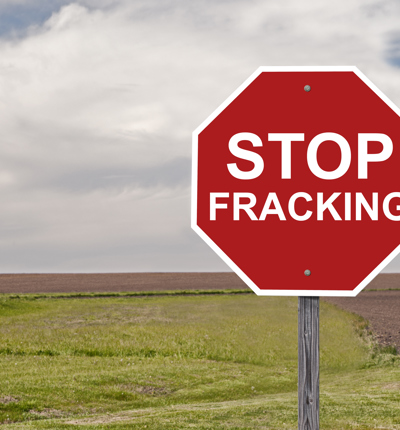
Court of Appeal to hear fracking injunction "test case"
An appeal against the decision by the High Court to uphold and renew an interim injunction prohibiting anti-fracking activity will be heard at the Court of Appeal on Tuesday 5 and Wednesday 6 March 2019.
Posted on 05 March 2019
In July 2017, fracking company INEOS was granted an unprecedented injunction against “persons unknown” in relation to eight sites across England linked to INEOS, including where fracking is planned or under investigation.
INEOS, founded by Sir Jim Radcliffe, is one of the world’s largest manufacturers of chemical and oil products, and the largest owner of shale licenses in the UK, with fracking licenses that cover more than 1.2m acres of land across the north‐west of England, Yorkshire and the Midlands.
Environmental activist Joseph Boyd, represented by law firm Leigh Day, and fellow campaigner, Joseph Corré, challenged the injunction in the High Court but their case was dismissed in November 2017. Their appeal against the high court’s decision to grant the interim injunction will be heard in the Court of Appeal this week, challenging the grant of the injunction on human rights grounds and other grounds.
The appellants argue that the widely drawn injunction is a threat to free speech and the right to peaceful protest. The injunction has been used by other companies involved in the fracking industry, including UKOG, Cuadrilla and Island Gas Limited, as a template to stop protestors from demonstrating their concerns about fracking.
Under the terms of the injunction, people are forbidden from ‘obstructing, impeding or interfering with the lawful activities’ of INEOS staff and their contractors at the sites. This prevents campaigners from engaging in a number of activities which had never previously been ruled to be unlawful. In particular, it contains what is effectively the first ever blanket ban on the tactic of slow-walking, which has long been a legitimate and legal form of peaceful protest.
Anyone who is found to have breached the injunction is liable to arrest and a prison sentence of up to two years and/or a fine up to £5,000.
Joseph Boyd said:
“This case is incredibly important. Fracking remains strongly opposed by local communities up and down the country and they should be able to resist this unpopular industry without fear of a fine or imprisonment”
Anna Dews, solicitor at law firm Leigh Day, said:
“Free speech and a right to peacefully protest is the core of any effective democracy. This injunction has become a test case, used at the moment by other fracking companies, but which has wide-ranging implications that reach far beyond any debate around the environmental damage of fracking. This case will be heard by the Court of Appeal next week and we will be arguing on behalf of our client that it represents an attack on the right of individuals to protest without facing the fear of arrest and imprisonment.”

